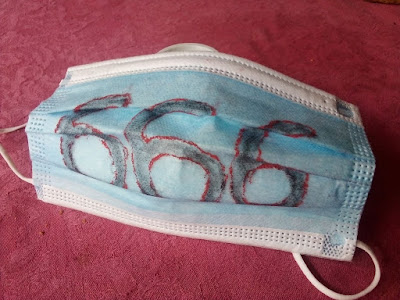I'm a firm believer in the idea that nature is near perfect in the way it has arranged things. This includes the way we are put together as human beings. Our senses are perfectly in tune with what we need. Therefore, we don't have to consult experts in order to remedy our lifestyles. All we need in order to figure out what to eat and how to live is a capacity for introspection. We have to pay attention to what our bodies are telling us, and we have to respond proactively to its signals.
When it comes to foods, there are two things to pay attention to. It needs to taste good, and it must also feel good. Once we've eaten something, we shouldn't immediately feel like eating something else, nor should we feel heavy and bloated. Rather, there should be a pleasant calm emanating from our stomach, and this calm should last for several hours.
I first became aware of this in my thirties when I started noticing how a breakfast with bacon and eggs gave a more agreeable and long lasting sense of calm than cereals and milk. Proteins and fats felt better than cereals. But fibres are also important, so a perfect breakfast needs to have some fruit or cereals as well.
The typical hotel breakfast buffet is in other words a good example of a wholesome start to the day. If we stay away from the sweets, and pile up on the other things instead, we can go for hours with a pleasant calm.
This should come as no surprise to anyone, because our ancestors lived for millennia as hunter gatherers. Fruits, eggs, roots, vegetables, cereals, fish and meat were the foods that they ate. Our bodies are therefore tuned towards this kind of diet.
By this same logic, anything invented since the era of hunter gatherer society should be viewed with suspicion. Modern processed foods will not make us feel good. Even rice and white bread should be viewed with suspicion. They may taste good, but they're not all that satisfying. We're not made for diets loaded with this kind of foods.
To find out what kind of foods are likely to be the most healthy for us, we need only imagine the typical hunter gatherer camp site. Such sites would have a few fires that the campers would keep alive to avoid having to start new ones. There would be embers glowing, and food was prepared on top of this. The preferred way to prepare food would be at a low heat because that would require the least fuel.
Furthermore, the hunter gatherers would eat whatever they happened to have at hand. Having few containers to cook in, and not much heat, they would chop their ingredients into pieces and mix it all into a single container where everything would simmer for hours. In short, they would make a stew.
Stews must be among the oldest food types in existence, and by extension, they must also be among the healthiest things we can eat. This suspicion can be further supported by the fact that stews are tasty, and they give a long lasting sense of satisfaction.
Another positive aspect of stews is that they benefit from what's often thought of as inferior cuts of meat. A good stew often requires some bones, and the meat shouldn't be too lean. Fat and bones elevate the stew.
A good stew is typically made with a range of herbs and spices, all of which contain micro-nutrients that are absent from most processed foods. There's a whole range of minerals that our bodies require in tiny amounts, and these nutrients come mostly via herbs and spices.
The fact that a stew simmers for hours makes it perfect for softening vegetables that are too coarse for us to eat raw or lightly cooked. Kale and carrots do well in stews. All sorts of other ingredients do well too even if they are cooked into a mush. Such ingredients soak up flavours from the meat, and they infuse the meat with flavours.
The economic beauty of a stew is that it is not only cheap to make, it's also easy to make, and it's hard to get it completely wrong. All we need to do is to cut vegetables and meats into pieces, add salt, herbs and spices, and toss it in a pot with some cooking fat, then let it simmer for two hours or so, checking on it every now and again. Water, tomatoes or left over wine can be added for moisture if need be.
Sitting down to eat our creation, we can't help thinking of the things that went into the meal and how the various flavours mix. This makes the meal not only delicious, but also interesting. All sorts of questions arise: What other ingredient would have done well? Which herbs were most effective? What could have been improved?
With stews, as with most things in life, there's always room for improvements, and there's always something new to try.
 |
| Lunch with family |















